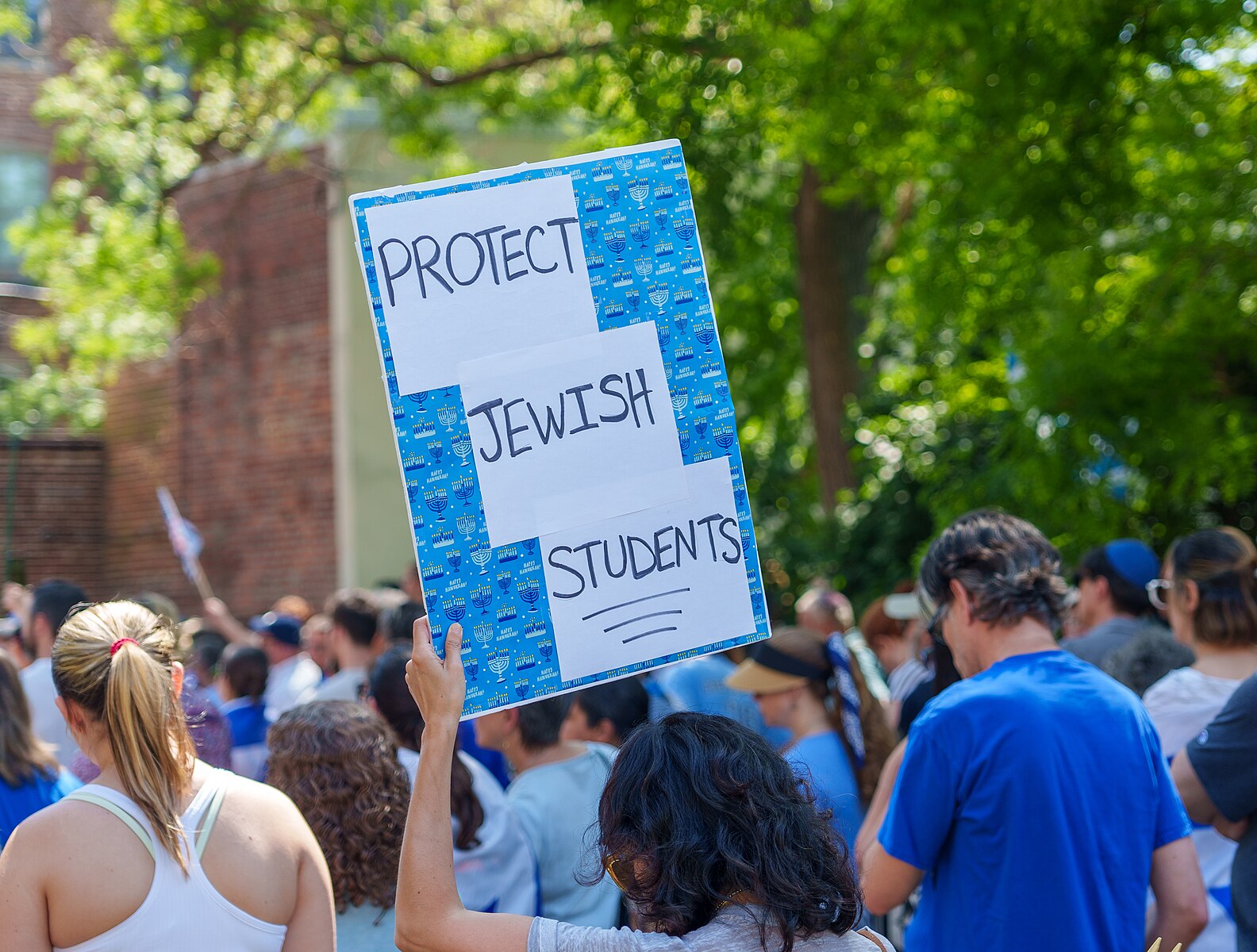Rise in antisemitism at UK universities must be tackled, Education Secretary says
The Education Secretary, Bridget Phillipson, has urged universities to take stronger action against antisemitism, following reports of a sharp increase in incidents on UK campuses.
Phillipson said that Jewish students “don’t feel safe”, and called on universities to “tackle this position of antisemitism” and ensure that campuses remain places where everyone can study without fear.
She told the BBC’s Laura Kuenssberg: “Often, [Jewish] parents worry about sending their children to university. We cannot accept that. There can be no place for it.”
Her comments follow growing numbers of antisemitic incidents at universities, which have doubled in recent years, according to data from the Union of Jewish Students (UJS).
The UJS recorded a 117% increase in reported cases between 2022/23 and 2023/24, compared to the two years prior.
This rise in reported antisemitic incidents comes amid heightened tensions over the Israel-Gaza conflict. Since October 2023, university campuses have seen a wave of student demonstrations and sit-ins.
The justification and glorification of terror on campus and online is particularly alarming – students around the country have openly celebrated Hamas’ October 7 attacks and called for violence against Jews
Warwick Jewish Society statement
While most of these protests have been peaceful, Arif Ahmed, from the Office for Students (OfS), expressed concern that some Jewish students have felt intimidated, harassed, or discriminated against under the guise of free speech .
Vivienne Stern, Chief Executive of Universities UK, said that universities must balance lawful freedom of speech with their duty to acknowledge that “expressing support for a terrorist organisation is a criminal offence”.
Speaking to The Boar, Warwick Jewish Society (JSoc) said that they are “deeply concerned by the rise in antisemitism on campuses across the UK over the past two years”, which has included at Warwick.
“The justification and glorification of terror on campus and online is particularly alarming – students around the country have openly celebrated Hamas’ October 7 attacks and called for violence against Jews. The use of language and symbols that promote hatred and violence is unacceptable and dangerous, and more action must be taken to combat this.”
Many campaigners and academics have warned against conflating criticism of Israel’s government with antisemitism.
Many protests were held on university campuses across the country ahead of the second anniversary of the October 7 attacks, which also came just days after two Jewish men were killed in a terrorist attack on Yom Kippur at a synagogue in Manchester
Ahmed told the BBC that freedom of speech does not equate to the freedom to intimidate or discriminate against Jewish students, and that the OfS was “prepared to act” if Jewish students were not protected.
Many protests were held on university campuses across the country ahead of the second anniversary of the October 7 attacks, which also came just days after two Jewish men were killed in a terrorist attack on Yom Kippur at a synagogue in Manchester.
Prime Minister Keir Starmer derided the protests, saying they had been used by some as a “despicable excuse to attack British Jews”.
Warwick Kehillah, a Jewish community at the University, told The Boar: “The Jewish community is shaken from the recent terror attack on a British synagogue, which has come in the context of rising antisemitism. British Jews were attacked and killed for being Jewish.
“As Jews who support Palestinian freedom, we are witnessing both the rise in antisemitism throughout Europe and its weaponisation by repressive governments. We must resist the exploitation of our community’s fears from politicians who have been cynically equating Jews and Israel. We have seen some in parliament take the opportunity to further repress the right to protest, conflating the British Jewish community and the state of Israel.”
Approaches to tackling antisemitism must both recognise the nuances and particularities of anti-Jewish racism, while also seeking to unite marginalised communities
Warwick Kehillah statement
The group concluded that “approaches to tackling antisemitism must both recognise the nuances and particularities of anti-Jewish racism, while also seeking to unite marginalised communities.”
Ahmed also emphasised how both safety and free expression must be upheld on campuses, but that: “You must allow people to express their views on really controversial topics, because alternatively, there will be no alternative to violence”.
The Department for Education has said that it continues to work with universities to ensure effective responses to antisemitic incidents, including delivering 600 training sessions to help staff identify harassment and providing £4 million of funding to support projects that teach pupils and students how to identify misinformation online.
Warwick JSoc concluded their statement, saying: “We are extremely grateful for the support we have received here at Warwick during this challenging period for our community, and remain steadfast in our determination to ensure that the University is a place where Jewish students can be proud of their Jewish identity.
We encourage any student who experiences antisemitism to reach out to JSoc, as we can support you both with reporting and with signposting to specialised welfare support. We’re here for you and we stand with you.”

Comments